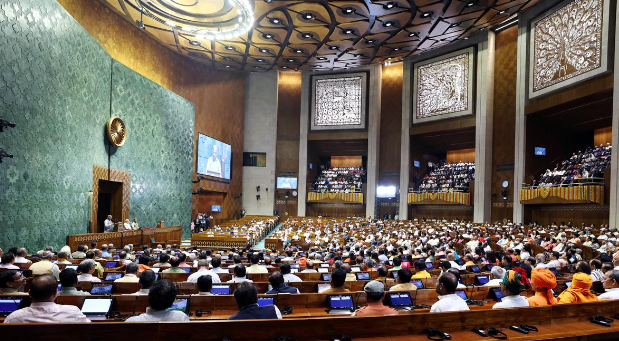Embracing Competency in Political Discourse: The Era of Performance Politics (GS Paper 2, Polity)

Introduction: Reimagining Political Competency
- In the dynamic landscape of India's vibrant democracy, the notion of political competency emerges as a crucial determinant of effective governance.
- As citizens entrust their elected representatives with the mandate to lead, the emphasis shifts towards a competency-based approach in political discourse, wherein the ability to deliver on promises becomes paramount.
The Foundation of India's Democratic Fabric
- At the heart of India's democratic framework lies the collective representation of the people through elected officials.
- With 795 Members of Parliament, approximately 4,123 Members of the Legislative Assemblies, and a staggering 31.8 lakh elected representatives at the local government level, the responsibility to formulate policies, address citizen concerns, and steer the nation towards progress rests on their shoulders.
The Need for Competency: Beyond Educational Qualifications
- While educational qualifications serve as a foundational element, effective governance necessitates a broader spectrum of competencies.
- Behavioral skills, including communication, leadership, and negotiation, are essential for engaging stakeholders and fostering unity amid diversity.
Functional Competencies: Understanding Policy Processes
- A deep understanding of legislative rules and policy implementation processes is imperative for elected representatives.
- They must bridge the gap between citizen grievances and policy formulation, ensuring that governance remains responsive and inclusive.
-
Domain Expertise: Tailoring Solutions to Constituency Needs
- Domain-based competencies equip representatives with the knowledge and skills to address the unique needs of their constituencies.
- From infrastructure planning to technological advancements, staying abreast of relevant domains ensures informed decision-making and holistic development.
Balancing Specialization with Innovation
- While advocating for competency-based politics, it's crucial to avoid the competency trap, wherein a narrow focus on specific skills stifles innovation.
- Instead, fostering critical thinking and problem-solving alongside technical expertise promotes adaptive governance.
Institutionalizing the Vision: Aligning Competencies with Roles
- To institutionalize competency-based politics, aligning competencies with specific roles is essential.
- Leveraging existing training resources and fostering collaboration between central and state institutions and civil society organizations facilitates continuous learning and skill development.
Conclusion: A Call for Accountability and Competency
- As India marches towards a developed future, the onus lies on citizens to demand more from their elected representatives.
- Competency must become the cornerstone of political discourse, where effective leadership is not merely an exception but an expectation.
- In embracing this ethos, we pave the way for a truly empowered and prosperous nation.


